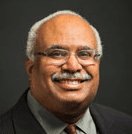Working Group on Urgent Priorities for Science, Medicine, & Public Health After COVID-19
Lorem ipsum dolor sit amet, consectetur adipiscing elit, sed do eiusmod tempor incididunt ut labore et dolore magna aliqua. Ut enim ad minim veniam, quis nostrud exercitation ullamco laboris. Lorem ipsum dolor sit amet, consectetur adipiscing elit, sed do eiusmod tempor incididunt ut labore et dolore magna aliqua. Ut enim ad minim veniam, quis nostrud exercitation.

About the Program
In March 2021, the National Academy of Medicine established a working group to provide guidance for the U.S. government and other stakeholders on key priorities for rebuilding and improving scientific, medical, and public health systems after COVID-19.

Featured
Nine Urgent Priorities for Science, Medicine, & Public Health Based on Lessons Learned from COVID-19
While many organizations and policy makers are working in these areas, progress has not been sufficient to realize the transformative change that will be necessary to rebuild American society to be more resilient after the COVID-19 pandemic. It is imperative to capitalize on the current moment, when the pandemic has heightened motivation to address systemic challenges for health, to catalyze the critical actions.
Working Group Members

Dr. Balser undertook residency training in anesthesiology and fellowship training in cardiac anesthesiology and in critical care medicine at The Johns Hopkins Hospital in Baltimore, MD. He joined the faculty at Johns Hopkins in 1995, where he practiced cardiac anesthesiology, ICU medicine, and led an NIH-funded research program aimed at the genetics of cardiac rhythm disorders, such as sudden cardiac death.
He returned to Vanderbilt in 1998 as Associate Dean for Physician Scientist Development, and soon was appointed Chair of the Department of Anesthesiology, directing one of the medical center’s largest clinical service programs. He became the Medical Center’s chief research officer in 2004, leading a period of scientific expansion that moved the Medical Center into the nation’s top 10 in NIH funding, launching big-science programs integrating health informatics and genomics that stimulated the Medical Center’s national leadership in personalized medicine.
In 2008 he was elected to the National Academy of Medicine, and later that year was named the eleventh dean of Vanderbilt’s School of Medicine since its founding in 1875. In 2009, he was also named Vice Chancellor for Health Affairs with executive responsibility for all health-related programs including the hospitals, clinics, research programs, and the medical and nursing schools. He has led the Medical Center through a period of marked service-volume growth with major inpatient expansions of the children’s hospital and the adult critical care areas, bolstered by 4% compound annual growth of outpatient visits (over 2.1 million per year), and by the creation of region’s largest, multi-state provider-led network (over 50 hospitals and 3000 clinicians: the Vanderbilt Health Affiliated Network).
In 2013-2014, he led a $230 million (8%) cost reduction across all mission areas, improving the Medical Center’s competitive position in a rapidly evolving price-sensitive marketplace. In coordination with the Vanderbilt Chancellor and Board of Trust, Dr. Balser has led the Medical Center through a restructuring process that concluded April 30, 2016, placing its clinicians, hospitals, clinics, research and graduate medical education programs into a financially distinct not-for-profit corporation, Vanderbilt University Medical Center (VUMC). As President and CEO of VUMC, he reports to an independent board of directors, while also serving as dean of the Vanderbilt University School of Medicine.

Georges Benjamin, MD, is known as one of the nation’s most influential physician leaders because he speaks passionately and eloquently about the health issues having the most impact on our nation today. From his firsthand experience as a physician, he knows what happens when preventive care is not available and when the healthy choice is not the easy choice. As executive director of APHA since 2002, he is leading the Association’s push to make America the healthiest nation in one generation. He came to APHA from his position as secretary of the Maryland Department of Health and Mental Hygiene. Benjamin became secretary of health in Maryland in April 1999, following four years as its deputy secretary for public health services. As secretary, Benjamin oversaw the expansion and improvement of the state’s Medicaid program.
Benjamin, of Gaithersburg, Maryland, is a graduate of the Illinois Institute of Technology and the University of Illinois College of Medicine. He is board-certified in internal medicine and a fellow of the American College of Physicians, a fellow of the National Academy of Public Administration, a fellow emeritus of the American College of Emergency Physicians and an honorary fellow of the Royal Society of Public Health.
An established administrator, author and orator, Benjamin started his medical career in 1981 in Tacoma, Washington, where he managed a 72,000-patient visit ambulatory care service as chief of the Acute Illness Clinic at the Madigan Army Medical Center and was an attending physician within the Department of Emergency Medicine. A few years later, he moved to Washington, D.C., where he served as chief of emergency medicine at the Walter Reed Army Medical Center. After leaving the Army, he chaired the Department of Community Health and Ambulatory Care at the District of Columbia General Hospital. He was promoted to acting commissioner for public health for the District of Columbia and later directed one of the busiest ambulance services in the nation as interim director of the Emergency Ambulance Bureau of the District of Columbia Fire Department.
At APHA, Benjamin also serves as publisher of the nonprofit’s monthly publication, The Nation’s Health, the association’s official newspaper, and the American Journal of Public Health, the profession’s premier scientific publication. He is the author of more than 100 scientific articles and book chapters. His recent book The Quest for Health Reform: A Satirical History is an exposé of the nearly 100-year quest to ensure quality affordable health coverage for all through the use of political cartoons.
Benjamin is a member of the National Academy of Medicine (Formally the Institute of Medicine) of the National Academies of Science, Engineering and Medicine and also serves on the boards for many organizations including Research!America and the Reagan-Udall Foundation. In 2008, 2014 and 2016 he was named one of the top 25 minority executives in health care by Modern Healthcare Magazine, in addition to being voted among the 100 most influential people in health care from 2007-2017.
In April 2016, President Obama appointed Benjamin to the National Infrastructure Advisory Council, a council that advises the president on how best to assure the security of the nation’s critical infrastructure.








Nicole Lurie, MD, MSPH is currently the Strategic Advisor to the CEO of the Coalition for Epidemic Preparedness Initiatives (CEPI). She is also a Senior Lecturer at Harvard Medical School, a member of the research faculty at Massachusetts General Hospital and Professor of Medicine at George Washington University School of Medicine. From 2009-2017 she served as Assistant Secretary for Preparedness and Response at the US Department of Health and Human Services. In that role she led the HHS response to numerous public health emergencies, ranging from infectious disease to natural and man-made disasters and is responsible for many innovations in emergency preparedness and response. She also chaired the Public Health Emergency Medical Countermeasures Enterprise, a government-wide organization ultimately responsible for the development of medical countermeasures, including vaccines against pandemics and emerging threats. Dr. Lurie has a long history in health services research. Prior to federal service, she was the Paul O’Neill Professor of Policy Analysis at RAND, where she started and led the public health preparedness program and RAND’s Center for Population Health and Health Disparities. She has also had leadership roles in academia, as Professor of Medicine and Public Health at the University of Minnesota, as Medical Advisor to the Commissioner, Minnesota Department of Health. Dr. Lurie received her BA and MD degrees from the University of Pennsylvania, and completed her residency and public health training at UCLA. She is recipient of numerous awards and is a member of the National Academy of Medicine. She continues to practice clinical medicine in a community clinic in Washington, DC.
COI: Salary/Consultant Fee – Coalition for Epidemic Preparedness Innovations

